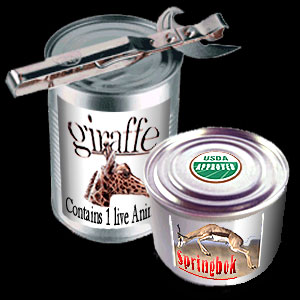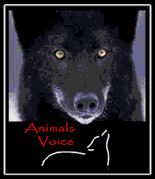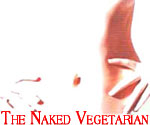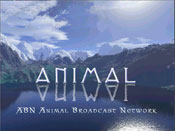Preserve hunts on the increase

Trying to stay a little under the radar private hunting preserves have grown quickly and quietly over the last 4-5 years. After 911, as overseas travel began to entail a certain amount of risk, hunters in the United States became an attractive clientele base for land owners wishing to turn a quick profit under newly relaxed regulations governing the import and ownership of game animals both domestic and exotic.
Preserve hunting - called "Canned Hunts" because the animal is kept fenced in and unable to escape - is nothing new; other nations have allowed private hunt clubs and member preserves for decades going back to the mid 19th century. The tradition of the hunt in modern times takes its cue from the private preserve hunts of the wealthy landed Maharaja class in British protectorate India, and then moved west as far as Europe by the end of the First World War.
Never considered sportsmanlike in the United States private preserve hunting, behind fences, seemed classist and foreign to open-range-minded Americans in the tradition of the Davie Crockets and Teddy Roosevelts of our time.
Not until the land became less available to the hunter did a sea change occur that has entirely altered the way hunters view their "sport." As more and more citizens began to object to people tramping around in the woods, usually on private lands, shooting - sometimes indiscriminately - did hunters began to look for land owners who would willingly accede to the use of their land and allow the hunt, usually for a fee.
The USDA has long since abrogated its jurisdiction over what it calls the ownership prerogative of citizens regarding private property and animals. Opting instead for the somewhat more lucrative role of licensor and fee collector, from the USDA website:
Animal Preserves--Game preserves, hunting preserves, and similar enterprises that keep animals in the wild state are exempt. However, if you maintain special exhibits for compensation or promotional activities, you must be licensed or registered as an exhibitor. If you sell animals to exhibits, research, or the pet trade, you must be licensed as a dealer.
Hunts--Hunting events are not regulated. Sponsors are not considered exhibitors if they keep animals only for sport--not for exhibition purposes. Hunting is not considered animal fighting, even if dogs, falcons, or other animals are used to help bring down game.
The Captive Mammal Protection Act (H.R.5242) in the House of Representatives and the Captive Exotic Animal Protection Act (S.2731) in the Senate would ban the interstate transport of animals for the purpose of shooting them in canned hunts. For more information regarding the status of these proposed bills visit The Fund for Animals and hunt down your local Representative in Congress.
The following site list of "Canned Hunt" preserves in Florida was found after a brief search of the internet.
Suwannee River Ranch
Bienville Plantation
Carter's Pasture
T & T Ranch (no web site)
Dixie Sportsman's Hunting Lodge
Cracker Swamp Hunting Preserve
Double H Exotics (no web site)
Ross Hammock Ranch
Brahma Island
FX Bar Ranch
Elk Hammock Ranch
Outwest Farms
Brady Ranch
J & R Outfitters













0 Comments:
Post a Comment
<< Home